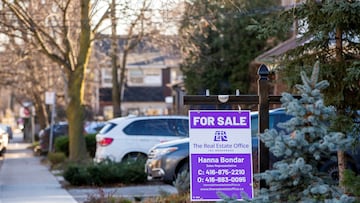Real estate prices: Which housing markets are cooling the fastest?
With mortgage rates currently at a decade-long high, buyers are holding back on housing purchases and stock is sitting on the market for longer.


It has been an extremely volatile few years for the United States’ housing market and recent trends have pushed up mortgage rates significantly, decreasing demand for properties in the short-term.
During the first year of the pandemic the record-low interest rates made mortgages relatively affordable, driving up demand and list prices as a result. However inflationary pressures have since pushed up mortgage rates and housing markets across the country have cooled significantly.
“Buyers have negotiating power really for the first time in several years,” said Nicole Bachaud, Zillow senior economist. “But that’s with the caveat of, only if you can afford home prices right now.”
With mortgage rates at their highest levels in more than a decade, some of the most coveted locations in the US are experiencing a drop-off in demand.
Financial advice site SmartAsset has brought together data from the country’s largest metropolitan areas to find the housing markets which are cooling fastest.
Here are the ten markets to have recorded the most significant drop-off in house prices:
1. Boise, Idaho
2. Austin-Round Rock-Georgetown, Texas
3. Phoenix-Mesa-Chandler, Arizona
4. San Jose-Sunnyvale-Santa Clara, California
5. Las Vegas-Henderson-Paradise, Nevada
6. Salt Lake City, Utah
7. North Port-Sarasota-Bradenton, Florida
8. San Diego-Chula Vista-Carlsbad, California
9. Provo-Orem, Utah
10. Stockton, California
Mortgage rates at highest level since 2008
The covid-19 pandemic wreaked chaos with households finances and the uncertainty that it brought sent interest rates tumbling. In January 2021 the average rate for a 30-year fixed mortgage in the US slumped to 2.65%.
That temptingly low mortgage rate encouraged those who could afford to get on the housing ladder to do so, sparking the next phase of the pandemic-affected housing market.
But by September 2022 the average rate for the same type of mortgage had soared to 5.66%, according to data produced by Freddie Mac.
It's official: After a decade of unstoppable growth, the housing market has begun to fall.
— Graham Stephan (@GrahamStephan) October 9, 2022
The escalating Mortgage rates (Now over 7%!) and increasing inventory have caused home sales to go down nearly 20% YoY.
80% of the U.S is about to be affected🧵 pic.twitter.com/TEaXwcr9X8
This has contributed to a situation where demand for homes has cooled, with properties now staying on the market for longer, on average, before finding a buyer. Redfin data found that the proportion of homes in the US that were on the market for more than 30 days is 12.5% higher than it was at the same point in 2021.
Related stories
Last year more homes were being snapped up quickly as those in the market were able to secure favourable mortgage terms. As the demand has dropped in 2022, so has the rate of construction of new homes.
Robert Dietz, the National Association of Home Builders’ chief economist, explains the significance of the drop-off: “The total volume of single-family starts will post a decline in 2022, the first such decrease since 2011.”

